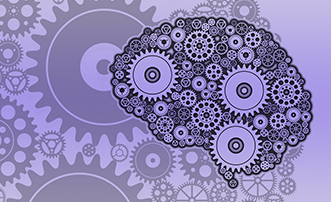Brain changes can happen for a variety of reasons, including dementia or changes due to an accident or injury. These changes can put you at risk for increased falls, and once you have a fall, your risk of falling again doubles. Falls are the most common cause of a traumatic brain injury. Fear not, and hopefully fall not, with these tips!
Falls can happen for many reasons. When experiencing changes in the brain, it not only affects your ability to recall things, plan ahead, or complete tasks, but also your senses and reaction time. This may include how you are able to see potential tripping hazards or react to a fall. Changes to your brain due to a type of dementia are often progressive. As the brain changes, your senses may change as well, putting you at increased risk over time. Even when dementia or brain changes are not involved, your body naturally change as you age. This means that you naturally can experience a decline in coordination and reaction time.
Luckily, there are lots of ways to help prevent a fall by looking at your environment, both inside and outside.
Examining your health is an important way to help prevent falls. Side effects from medications or interactions between medications can put you at an increased risk for falls. This can be caused by side effects such as drowsiness, dizziness, or drops in blood pressure. A good practice is to ask your physician or pharmacist if a medication has any of these and start a conversation about your risk for falls.
Exercise is a great way to keep your body healthy and strong. A strong body can help prevent a fall and help you recover if you do have one. Before starting any exercise program, talk with your physician. Stress can also play a role in falls. If you are stressed or restless, you may not be at your best mentally, not getting enough sleep, or feeling overwhelmed and miss paying attention to a hazard that could cause a fall. Be sure to keep your stress in check and help loved ones with their stress, too.
Visual changes can contribute to falls. Regularly have your eyes checked to ensure you can see properly. Dementia can affect the way your brain is able to process what your eyes see, which can make it difficult to spot potential hazards. If you or a loved one is living with dementia, check your environments.
Potential tripping hazards include clutter, rugs, uneven surfaces, and poor lighting. These hazards can become even more dangerous if your brain is changing and not able to understand what it sees or react in time. Slippery surfaces such as ice and water are additional consideration and it can be important to pay attention to weather conditions. Your brain may not see or recognize black ice, but if you know it’s been cold and wet outside, that’s a good indicator to be careful.
If this seems overwhelming or you’re not sure where to start, enlist the help of a friend or community program. There are options in Brown County for home safety walkthroughs that our staff are happy to help connect you with. By implementing these tips, you can be safer and fall free!
Sources:
cdc.gov/falls/facts
nhsinform.scot/healthy-living/preventing-falls/falls-and-dementia




